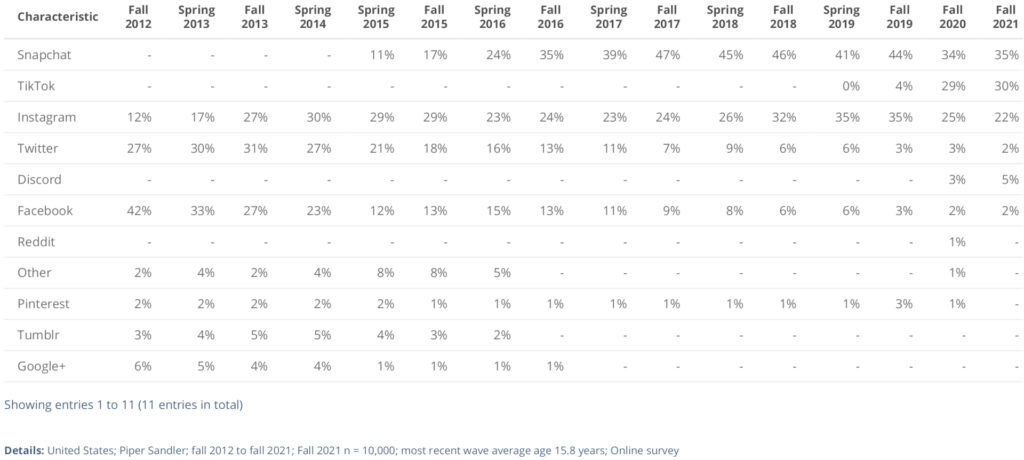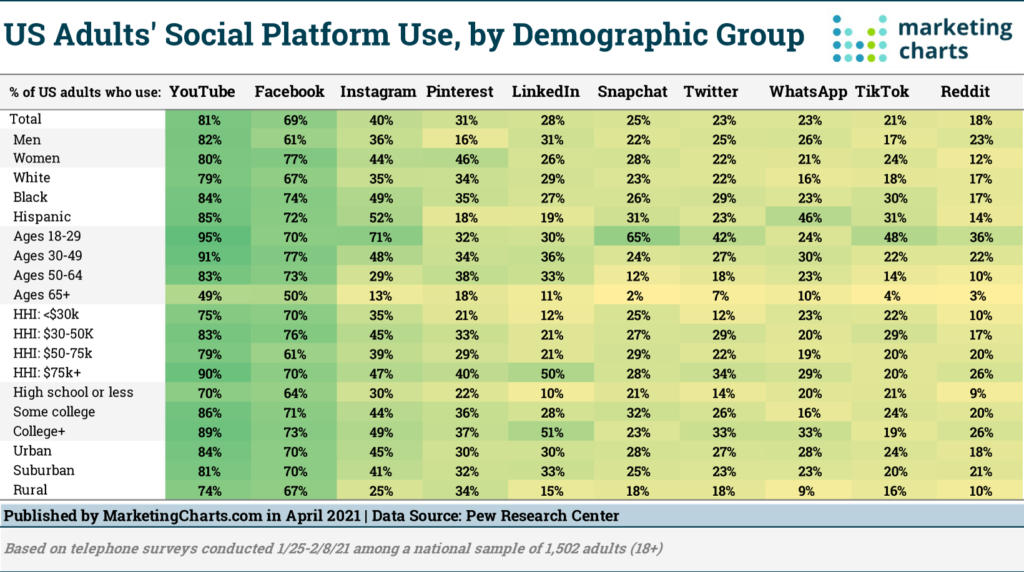My friend, Kris Halpin, asked on Twitter if musicians need to be on every new social media platform that emerges.
Lots of musicians I know hold the view that new social media services are “must” – you’ve GOT to be on TikTok. I think that’s a really dodgy take. Self care matters. If a platform stresses you out, don’t feel professionally obligated to engage with it
— Dyskinetic. ディスキネティック。 (@krishalpin) November 19, 2022
I day job as a marketer specializing in digital channels, but who also plays at being a musician sometimes. Therefore, I have all of the thoughts about this!
So… do musicians need to be on every new social media platform?
The short answer is, “no”.
The more annoying answer, is, “it depends”.
To start, let’s have a brief history of musicians on social media through a musician who was there.
In the beginning
When I first started trying to be a rock star, there was Myspace. Creating a profile for my band, Nerve Centre, was the first time I did something with the mindset: if people read this, what will they think? And that was my first step in becoming a marketer. I lovingly tended to it, and trying to make it stand out was my first foray into HTML.
Eventually, Facebook showed up, and then Twitter. We were on them too.
Myspace added features to make it more like Facebook and Twitter. It didn’t realize that adding things to make it more like the other platforms just made it clunky, and we were happy using the other platforms for those features. So, it died.
Not a quick death though. Because of its prominence among musicians, apparently record label A&R people still used it after everybody else had stopped.
“Can I have a link to your Facebook?”
Facebook in particular became huge. And as with many things that become huge, it became silly and awful.
Previously, a musician or band was booked for a gig on the understanding that they’d sell tickets. If they sold a lot of tickets, that was the basis of them getting future gigs with that promoter.
It was about the money. Nice and fucking simple.
But, after a few years of Facebook, there were Pages. Every band “had” to have one. Why? Frankly, for musicians, they weren’t as good as Myspace because it didn’t have a music player.
At some point, I can’t remember specifically when, promoters were booking acts based on how many Facebook followers they had. Luckily, my band could still get gigs based on simple old ticket sales, so we never got too caught up in that.
But you could see it in newer acts’ sets – in between every song: “Give us a like on Facebook to stay up to date!”
They ruined their sets by begging pathetically for likes, because getting the likes was the way to future gigs. And the pages were all crap. Nobody cared about 50 photos from your rehearsal.
What a mess.
It got worse. I remember a girl with 3,000 likes kept getting booked. But I never saw her bring any more than three people to her gigs. She couldn’t tune her guitar. And spent the whole set chatting to her friend from the stage. And didn’t watch any of the other acts. But she kept getting gigs because of the 3,000 likes.
Urgh.
It didn’t have a name yet, but this nonsense was what became known as “influencer marketing.” And I could see it as nonsense before it had its name.
Later
Gradually, my efforts at becoming a rock star waned.
But the new social media channels kept coming. In no particular order, along came Instagram, Snapchat, WhatsApp, TikTok, BeReal, and I’m sure I’m forgetting some. I guess Reverbnation was around.
Although I had tapped out, I still needed awareness of these things for day job.
Are you going to answer the question?
OK, OK. I just wanted to show that I’ve been looking at social media through a musician’s lens for quite some time.
Throughout the history outlined above, I was developing my career as a marketer specializing in digital channels.
With that background in mind:
I would say “no”, musicians don’t need to be on every new platform.
But, they should still set up a profile on every new platform.
Who are you trying to reach on social media?
The crux of the discussion is your audience.
Typically, the early adopters of social media platforms are teenagers. If your music is for teenagers, then yes, you probably need to be on the latest social media platform.
Equally, older people are late adopters to social media platforms. If your music is for older people, then no, you don’t need to be active on the latest social media platform.
However, as the new platform ages, and as the late adopters start using it, you need to be active there. That’s why you need to get your profile set up as soon as you hear about it – to make sure you get the user/profile name you want, so you can align it with the rest of your music brand.
As an example, here’s a table that shows teens’ preferred social media platforms from 2012 to 2021:

In that table, you can see Facebook’s teen users plummeting. So if you wanted to reach teenagers in 2012, Facebook was the place to be. Today? Nope.
But, if you started your band in 2012, your fans have likely aged with Facebook, so they’ll still be there. Therefore, it’s likely still a valid platform for you.
This table is also helpful. It only shows 18+, but it gives you a fair idea of who’s using what:

You need to keep an eye on which platforms people are engaging with you on, and more importantly, what’s driving them to your music. If any of them have little to no engagement, ditch it.
Hypothetical semi-autobiographical anecdotal case study
Let’s say you’re in your 40s, and you have a Facebook page for your band. It’s probably going to get the best engagement there because that’s the social media platform where people in their 40s mostly are.
Then TikTok becomes popular, and every bad marketer says you need to be there. But everybody on it is half your age, none of your friends are on it, so you don’t bother.
But then a year or two later, your chums are on TikTok. Now you need to be there! Except you didn’t think it was important so now your TikTok handle is different from your Facebook handle which is gammy branding – easier to have one handle that you can tell people to find you on any platform, rather than trying to explain a different one for each platform.
In summary: do musicians need to be on every new social media platform?
Whether musicians need to be on every new social media platform depends on the audience they’re trying to reach.
If you’re consistently trying to reach teenagers, the answer is yes.
Otherwise, you can claim your profile, but you don’t need to put any effort into it until it increases in popularity with the age group you’re trying to reach. And you can abandon anything where people aren’t engaging with you.
Personally, I’m sick of social media. As noted in a post a few weeks back, I can’t be bothered doing it for this website anymore. I won’t mind if it all implodes, and bands get gigs based on their ability to sell tickets, which is more likely to be based on their ability to play an enjoyable set.
If you’re interested in some of the marketing theories related to this, here you can think about in the wider context of marketing your music.
- Segmentation, targeting, and positioning
- The 7Ps of marketing
- A brief overview of innovation adopters
If you found this helpful, subscribe! You’ll be notified of new posts on Thursdays, inspiring you going into the weekend.
And share why you found it helpful. Because it helps us, and others!
Feel free to shoot me a coffee